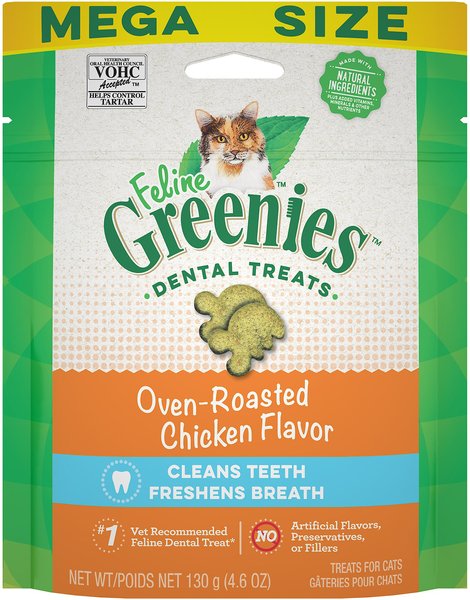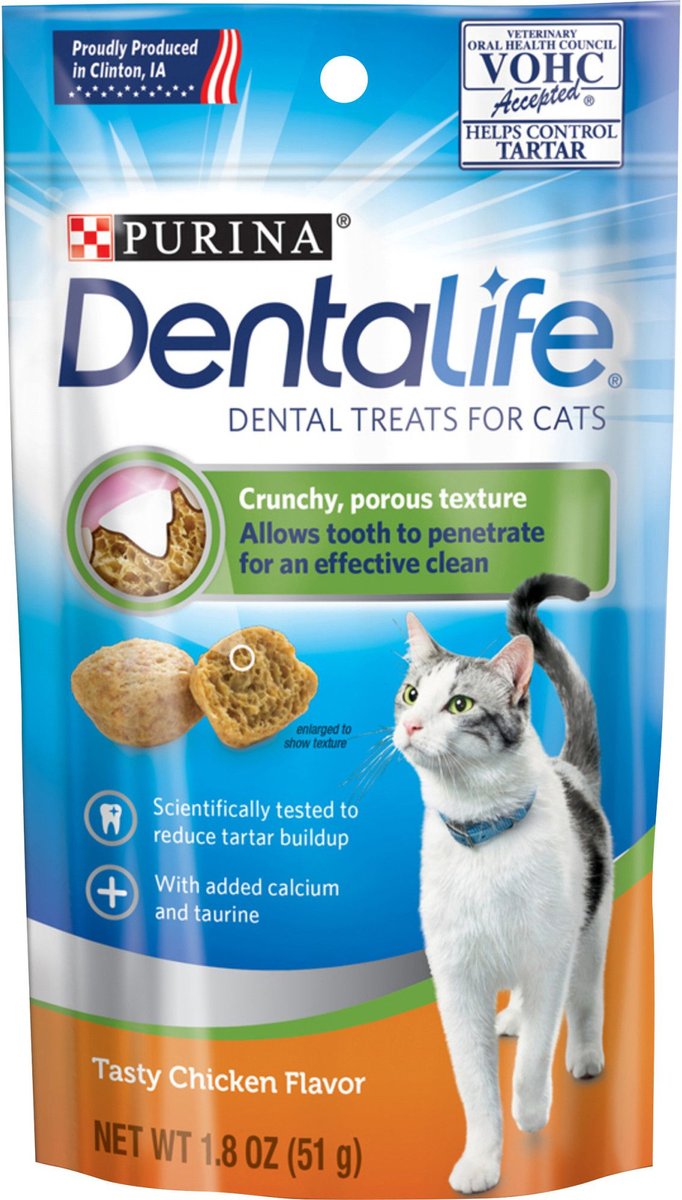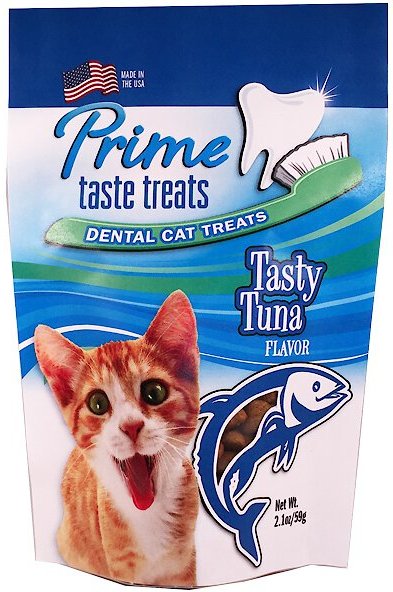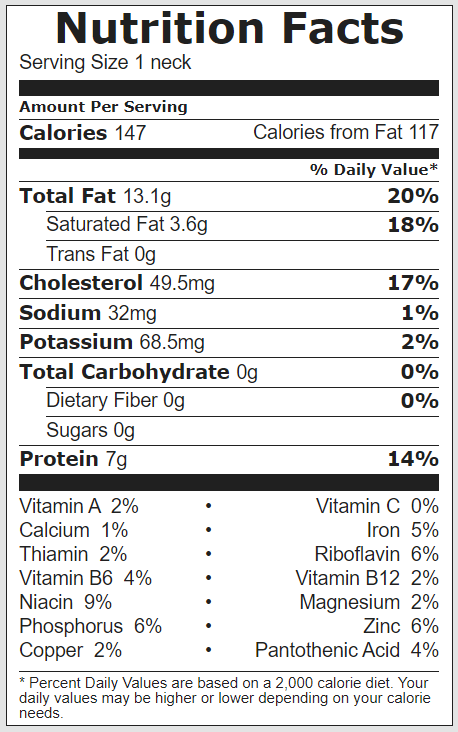Chicken is the perfect meat and meal for our feline pals – with numerous benefits. But still, we think a million times before feeding our cats some bony parts such as wings and necks. However, do not worry too much – such chicken parts are not hazardous if precautions are taken.
So, what about the chicken neck? Can cats eat chicken neck?
Let us find out.
Can Cats Eat Chicken Neck?
Yes, cats can eat chicken neck. Cats can easily chew the soft and cartilaginous bones in the chicken necks. Besides being a healthy protein source, chicken necks also promote better dental health in cats
That said, being a bone for most of the parts, chicken necks also have some downsides for cats. Cat keepers need to be careful while feeding their pets these chicken parts.
Benefits of Chicken Necks for Cats
It Cleanses the Teeth
Chicken necks are an excellent source of improving feline dental health. Raw chicken necks act as natural dental chews because they provide an abrasive action when crushed under the teeth, effectively removing plaque (professional cat teeth cleaning costs up to USD 400!).
The plus point: chicken necks are less than half in calories when compared to commercial dental chews!
Like humans, cats’ teeth need to be brushed regularly. Otherwise, the cat may develop certain dental problems. Check How to Brush Cat’s Teeth.
Besides the chicken neck, some dental treats are specially designed for cats.
It Improves Joint Health
Chicken necks contain plenty of glucosamine which is great for joints, arthritis, and dysplasia in cats. Since a lot of cat breeds, such as the Devon Rex (up to 40% risk) and the Persian (up to 15% risk), are prone to hip dysplasia, chicken necks are no less than a boon for them. However, note that the glucosamine quantity varies from chicken to chicken, and there is no surety that a few chicken necks will suffice for joint problems in your kitty.
Research has shown the positive effect of glucosamine on knee health for almost all creatures. Its regular intake can build strong protection of the cartilage that surrounds different joints.
It Is Good For Bones
Though not much, chicken necks contain calcium that is vital for bone formation in cats. Besides, calcium is also essential for muscular health, blood clotting, and nerve transmissions. Cats deficient in this mineral may face serious problems such as rickets, lethargy, and restlessness.
It’s a Great Source of Proteins
Cats need meaty proteins to sustain themselves. In fact, according to the Association of American Feed Control Officials (AAFCO), an ideal cat diet should have around 26% to 30% proteins. They are essential for a healthy immune system, nervous system, and timely hair growth. Given that the chicken neck is protien-rich, it will make a good treat for cats if offered in moderation and cautiously.
In addition, protein intake may aid weight loss and keep the risks of diabetes and obesity at bay.
It Does Not Risk Overeating
Sometimes, cats can become fast eaters, risking overeating. Fortunately, chicken necks are slow foods; that is, they take time to be chewed and swallowed. By the time a cat chews on more chicken necks, the previous ones reach the stomach and give the feeling of fullness. In this way, cats usually become full before chicken necks on a plate are finished.
Potential Health Risks of Cat Eating Chicken Necks
Potential Risk of Choking
While bones in raw chicken necks are soft, they become brittle and hard for a cat to chew properly when cooked. These brittle neck bones may break into splinters, which could get stuck in the throat, making the cat choke. Besides that, these sharp splinters could injure the esophagus, which can be quite painful, especially if she has a respiratory tract infection.
Not to mention, even if the food item ingested does not get stuck, it could still be of no use because improper chewing may result in bad nutrient absorption. Similarly, it would not help remove dental plaque.
Bacterial Infections May Occur
Campylobacter bacteria contamination of chicken necks is a possibility. Though adult cats are most tolerant to these bacteria, and it is highly probable to cause infection only in kittens up to six months of age, the possibility of such occurrence cannot be ignored.
Salmonella infection risk also exists, especially in cats with weak immune systems. Some cats might get it without even showing the subtlest signs.
Infections May Spread
Cats eating raw chicken necks may lead to spreading different bacteria around the home. Since a cat might have bacteria in her mouth from the neck even after ingestion, there are high chances she will lick her paws, transferring those to her feet. As she walks around, the floor and furniture will be prone to contamination.
How to Feed Your Cat Chicken Neck?
As explained earlier, raw chicken necks must be the preference. However, their taste and texture are not similar to most chicken parts, which may hinder the feeding endeavor.
Be Careful When Buying
Deciding where to buy raw chicken neck for cats can be a bit challenging. The rule of thumb is to always go for the fresh pieces and avoid old ones because it has more chances of bacteria getting developed. Similarly, fresh raw necks are less likely to get splintered. Store those well and be very careful in maintaining their hygiene.
Move In Steps
Your cat is less unlikely to reject chicken necks if you go through the following proper steps:
- Start feeding only raw meat.
- If your cat is into cooked meat, cook the chicken necks only slightly.
- Hit and smash the bones well to break the hard bones inside.
- If your cat is not that interested, try mixing the necks with her favorite food.
- Feed your cat in her favorite corner of your home.
Come Back
Feeding your cat food over and over is likely to get her to develop a taste for it. Therefore, try feeding your cat a neck every day. Moreover, if you want your cat to keep the taste, never stop feeding her during her lifetime.
What to Do If Your Cat Goes Unwell After Having Chicken Necks?
Fortunately, bones in the chicken necks are too small and rarely cause any serious problems such as choking. Likewise, the cases of bacterial infections due to consuming chicken necks are also fewer. But you need to keep an eye on your cat every time she has chicken necks to avoid the worst-case scenarios.
If your kitty shows any of the following signs and symptoms after ingesting chicken necks, contact your vet ASAP:
- Vomiting
- Being visibly uncomfortable
- Inability to pass feces
- Bloating
- Neither eating nor drinking
- Lethargy
Final Verdict: Can Cats Eat Chicken Neck?
Yes, cats can eat chicken necks. The bones in chicken necks are soft and cartilaginous, offering healthy proteins, glucosamine, and calcium to cats. The soft bones in raw chicken necks don’t splinter and are easily grindable, so there is little to no risk of choking or injury. That said, the risk of bacterial infections exists, though it is quite rare.




